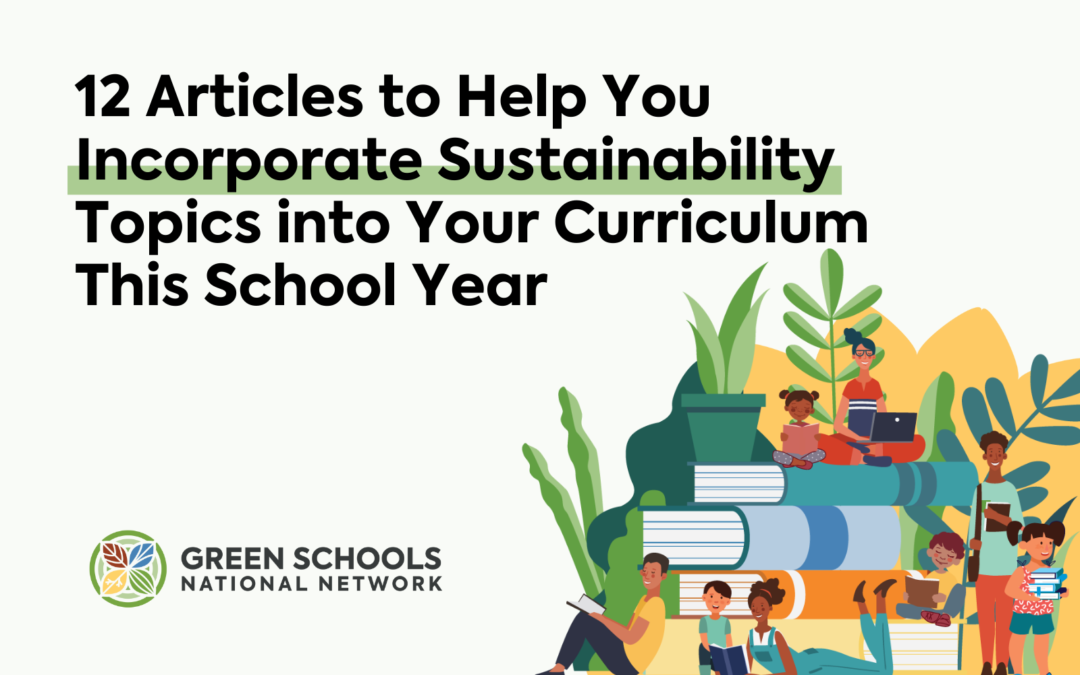Back to school season is here! The start of a new school year is a great time to revisit and update your teaching practices and curriculum. Whether you are new to teaching sustainability topics or are looking to dive deeper, we’ve assembled a collection of timely blog and Green Schools Catalyst Quarterly articles that include tips, strategies, and resources for incorporating sustainability topics in K-12 curriculum. Check them out.
Virtual Learning
Many schools and districts across the country are still practicing virtual or hybrid learning going into the fall. The following articles highlight tools and strategies you can use to develop meaningful virtual learning experiences for students.
- Get H(app)y! Outdoors: Tech Tools to Connect with the Natural World
- Project-Based Learning Can Make Remote Learning More Meaningful
- Reimaging the Potential for Virtual Learning: Lessons Learned from a Place-Based, Experiential High School Program
Outdoor Learning
Outdoor learning got a major boost during the 2020 – 2021 school year as teachers looked for creative solutions to bring students back for in-person learning. It’s a trend that we hope is here to stay! The following articles offer tips, tricks, and strategies to help you take learning outside and use your school grounds as a classroom.
- Overcoming ‘Green Fears’: Strategies for Safe and Joyful Learning in Outdoor Classrooms Multidimensional Learning: Using School Grounds as a Tool for Learning Environmental Sustainability Concepts
- Be a BirdSleuth! Citizen Science and Outdoor Investigation in Your Green Space
Climate Literacy
Teaching about climate and climate change is critical to fostering environmentally literate students. The following articles highlight how you can incorporate climate literacy across subjects and get students involved in real-world, climate-related projects that can impact their communities.
- Education Ensures Strong, Sustained, and Effective Climate Solutions
- Rethinking Climate Literacy: Teaching Middle Schoolers through Geography, Civics, Economics, and Literature
- Students Work with Community Stakeholders to Improve Resilience in Broward County, Florida
Civic Education
A high-quality civic education prepares students to be active participants in our democracy and engaged, informed, and compassionate citizens. The following articles offer tips, resources, and strategies for incorporating hands-on, authentic civic education and engagement into your curriculum.
- Planting Seeds for Engaged 21 Century Citizens: Civic Education in the Primary Grades at The Cottonwood School of Civics and Science
- Action Civics: A Transformative Approach for Teaching Civic Engagement in K-12 Schools Solutionary Units of Study: Preparing the Next Generation to Survive and Thrive
Deepen your teaching practice around all things sustainability by becoming a Green Schools National Network (GSNN) member. As a GSNN member, you will gain access to our exclusive member center, where you can connect with a community of like-minded peers to share best practices and lessons learned.

